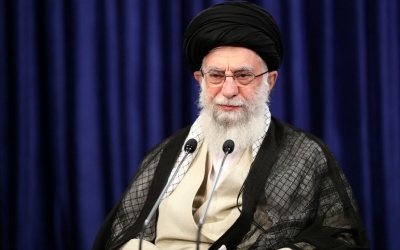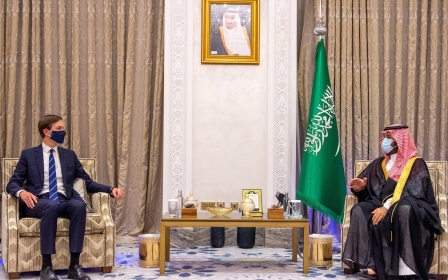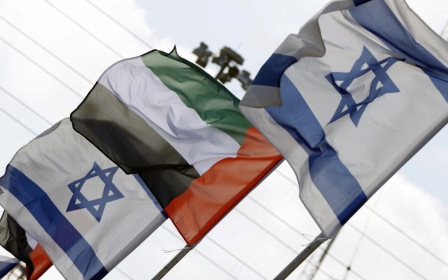Qatar emir presses for two-state solution in meeting with Kushner
Qatar's Emir Sheikh Tamim bin Hamad Al Thani told senior White House adviser Jared Kushner on Wednesday that Doha remained committed to a two-state solution for the Israeli-Palestinian conflict, with East Jerusalem serving as the capital of a Palestinian state.
Kushner met with the Qatari emir after visiting Bahrain, Saudi Arabia and the United Arab Emirates, where he had been trying to muster regional support for the deal between Israel and the UAE to normalise relations.
Sheikh Tamim told Kushner that Qatar was committed to the 2002 Arab Peace Initiative, in which Arab leaders had offered to establish relations with Israel in exchange for a full withdrawal from territories captured and occupied since the 1967 war, as a part of a deal for Palestinian statehood.
"During the meeting, they reviewed the close strategic relations between the State of Qatar and the United States of America, in addition to discussing a number of issues of common concern, especially the peace process in the Middle East region," the Qatar News Agency reported.
This week, Kushner visited the UAE for normalisation talks alongside a US delegation, on what was billed as the first Israeli commercial flight to the Emirates.
In remarks reported by the UAE state news agency WAM, Kushner suggested other Arab states could follow quickly.
Asked when the next state would normalise ties with Israel, he was quoted as saying: "Let's hope it's months."
While no other Arab country has indicated a willingness to follow the UAE, Saudi Arabia did allow the El Al charter flight carrying Kushner and the Israelis to use its airspace.
In Riyadh, Crown Prince Mohammed bin Salman and Kushner discussed the need for the Palestinians and the Israelis to resume negotiations and reach a lasting peace, the state-run Saudi Press Agency reported.
In Bahrain, which houses the US naval headquarters for the region, the state news agency reported that, during his meeting with Kushner, King Hamad bin Isa Al Khalifa had praised the role the UAE had played in defending Arab and Islamic interests.
Meanwhile, Turkey and Iran have criticised the UAE's move, with Ankara threatening to suspend relations with Abu Dhabi, and Iran's supreme leader saying the move "betrayed the world of Islam, the Arab nations, the region's countries, and Palestine".
Middle East Eye delivers independent and unrivalled coverage and analysis of the Middle East, North Africa and beyond. To learn more about republishing this content and the associated fees, please fill out this form. More about MEE can be found here.





